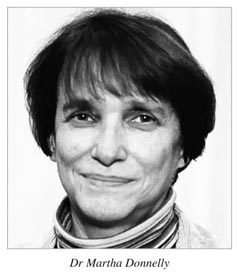Guest editorial: Geriatric psychiatry 2011, Part 1: Important issues for education

It is no secret that the Canadian and BC population is aging. Demographers have predicted this for the past 30 years and we are now seeing the effects of the “demographic imperative of aging.” Recently the Canadian Alzheimer Society alerted the public and health care planners to the “rising tide of dementia.”[1] The percentage of Canadians suffering from dementia is expected to increase from 1.5% in 2008 to 2.8% in 2038. Are we prepared?
Fortunately, there is some good news from academic psychiatry. Since July 2009, all Canadian psychiatry residents have had to do a 6-month rotation in geriatric psychiatry. Geriatric psychiatry is now a recognized subspecialty. However, in the future, as has been the situation in the past, psychiatric care for seniors will be provided largely by primary care practitioners and complicated cases will require multidisciplinary or interdisciplinary teams. Thus, education in effective care for seniors with mental health problems continues to be crucial.
So what issues are important for educating primary care practitioners now knowing that we have an aging population and a rising tide of patients requiring care for dementia, while at the same time we have economic restraints and increasing demands for shorter lengths of stay in acute care hospitals?
In this two-part theme issue we address concerns in geriatric psychiatry for the next decade. Part 1 focuses on how to protect and enhance cognitive function and how to address specific problems, including depression and overuse of alcohol.
In the first article, Dr Stephen Kiraly considers mental health promotion for seniors and affirms the need for patients to adopt healthy lifestyles and engage in self-care for their own well-being. Dr Kiraly explains how this has the potential to prevent illness and thus reduce the economic burden on the health care system.
In the second article, Dr Bonnie Wiese reviews assessment for depression in seniors and provides advice regarding pharmacological management. Dr Wiese reminds all health care providers that remission is the aim and that careful choice and titration of antidepressants is essential to achieve this.
Drs Darcy Cox and Heather D’Oyley then review basic principles of cognitive-behavioral therapy and discuss how it can be adapted for seniors in the third article, while Drs Jenny Rogers and Bonnie Wiese remind us in the fourth article about the high prevalence of problem drinking in seniors.
Drs Rogers and Wiese define healthy limits for seniors’ alcohol consumption, and list screening tools that can be used by clinicians to identify at-risk drinkers. In the final article, Drs Rishi Bhalla and Meryl Butters review cognition in affective disorders and suggest physicians carefully follow cognition in patients with late-life depression.
Having considered mental health promotion, problem drinking, and topics related to depression in Part 1 of the theme issue, we will focus more specifically on cognitive problems in Part 2.
—Martha Donnelly, MD, CCFP, FRCPC, Head, Geriatric Psychiatry Program, Department of Psychiatry, University of British Columbia
Head, Special Interest Focused Practice Program—Department of Family Practice,
University of British Columbia
References
1. Alzheimer Society. Rising tide: The impact of dementia on Canadian society. Accessed 18 June 2011. www.alzheimer.ca/english/rising_tide/rising_tide.htm.

